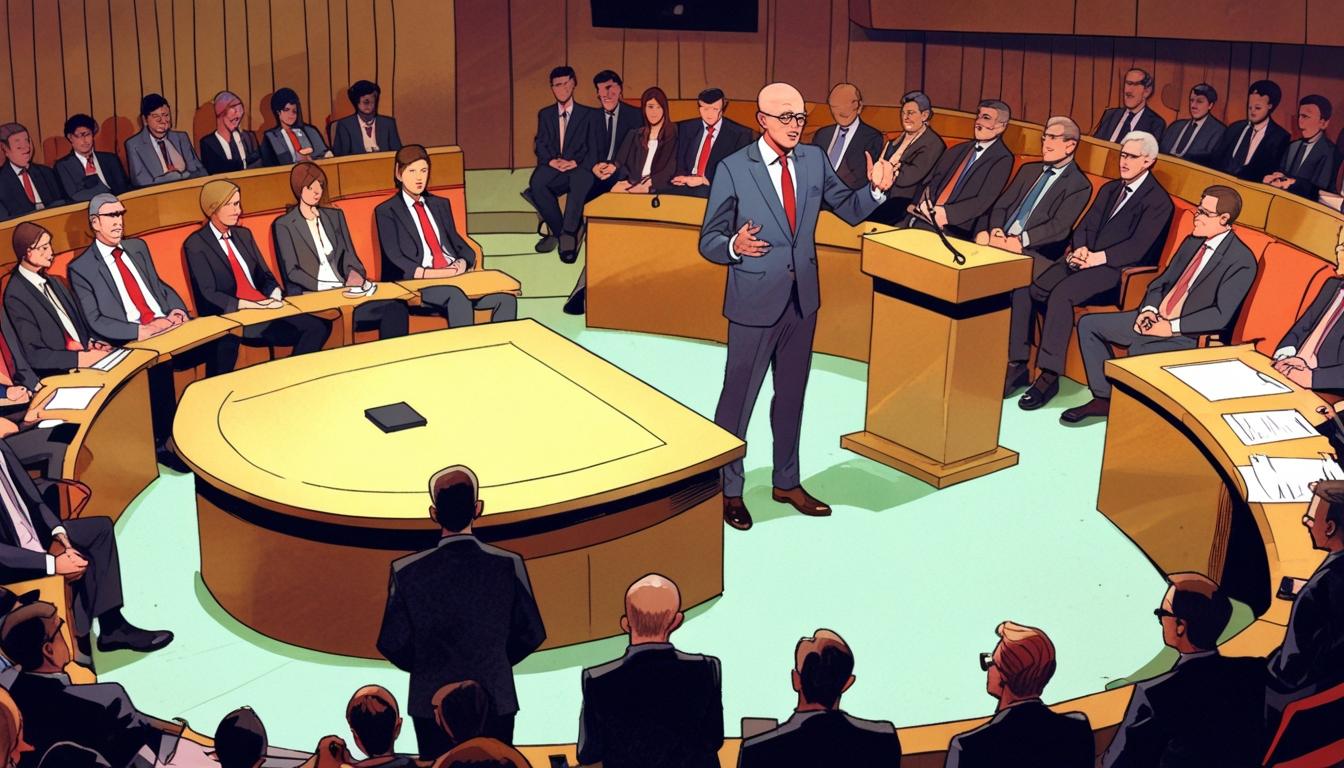Swinney's Confrontation in Parliament Highlights Conduct Concerns
In a recent session of the Scottish Parliament, a confrontational exchange between First Minister John Swinney and Conservative leader Douglas Ross brought to the forefront serious concerns regarding government accountability and the alarming state of parliamentary conduct. The debate turned particularly contentious around Swinney's handling of alleged salary increases for ministers amidst growing public frustration.
Despite the MSP code of conduct mandating members to treat each other “with courtesy and respect,” tensions flared as Ross challenged Swinney's claims about his salary, which reportedly surged following the lifting of a long-standing freeze. The decision to increase ministerial pay by over £19,000 was confirmed in April, with Swinney maintaining his salary at £135,605. Yet, Ross was quick to refute Swinney's declarations, highlighting a blatant disregard for transparency.
"I have got no worries about sharing that information...,” Swinney disingenuously asserted, doing little to quell the skepticism surrounding his accountability. Heckling from Ross led to a remonstrance from the Speaker, Ms. Johnstone, who warned that such interruptions could evoke severe repercussions. This spectacle raises red flags about the integrity of a government that seems indifferent to its own standards.
In a politically charged moment, Swinney lashed out at the Conservative Party, stating, “I think it says something about the depths that the Conservative Party has now reached that they are not prepared to take anything in good faith across this parliamentary chamber.” Ironically, this inflammatory language stands in stark contrast to the supposed commitment to decorum outlined by the MSP code, making one question whether this is the leadership Scotland deserves in its most challenging times.
Labour MSP Paul Findlay further underscored the inconsistency in conduct enforcement when he noted that while his previous criticisms of the Green Party were deemed unacceptable, Swinney's own caustic remarks toward the Conservatives went unchallenged. Such discrepancies reveal an alarming inconsistency in upholding professional standards in political discourse.
A significant focus of the session was Swinney’s ambitious pledge to create an additional 100,000 GP appointments. Labour’s Findlay condemned this as a “pathetic con,” referring to stark public health data showing a significant decline in GP appointments in recent years. His claims, supported by Public Health Scotland, indicated that under Swinney's leadership, there were 500,000 fewer appointments than the previous year. This disconnection from public concerns raises questions about the government’s competence and priorities.
In defense of his administration, Swinney pointed to a modest rise in the number of GPs, defending the pledges as essential to address crippling health issues like high blood pressure and obesity. Yet, the suggestion of tackling such systemic crises merely with increased numbers of appointments and allied professionals seems woefully inadequate given the pressing needs of the population.
As Swinney faced mounting criticism, Scottish Labour leader Anas Sarwar brought alarming statistics regarding the state of ambulance services to light. Reports revealed that ambulances had been left waiting outside hospitals for excessive periods, effectively turning car parks into ad hoc emergency wards. Sarwar illustrated this horror story with an example of a 15-hour delay faced by an ambulance at Aberdeen Royal Infirmary, encapsulating the gravity of the NHS crisis. His stark assertion that “the party who created Scotland’s NHS crisis will never be the ones to fix it” resonates deeply with the public sentiment increasingly fed up with government failures.
In what can only be described as a tenuous defense, Swinney acknowledged the persistent challenges within the NHS but insisted that improvements were on the horizon. This bold proclamation fails to address immediate issues, making it clear that mere promises are not a substitute for substantive action.
As scrutiny intensifies over conduct and accountability in the Scottish Parliament, the discord between governmental assurances and opposition criticisms reflects broader concerns about the effectiveness of current initiatives. With a government grappling to maintain its credibility while facing thunderous opposition, it becomes imperative to demand genuine accountability and high standards that are supposed to govern our elected officials. The need for transparent, effective governance has never been more urgent, and indeed, the call for a change in leadership that genuinely addresses these pressing issues is echoing louder among the electorate.
Source: Noah Wire Services
